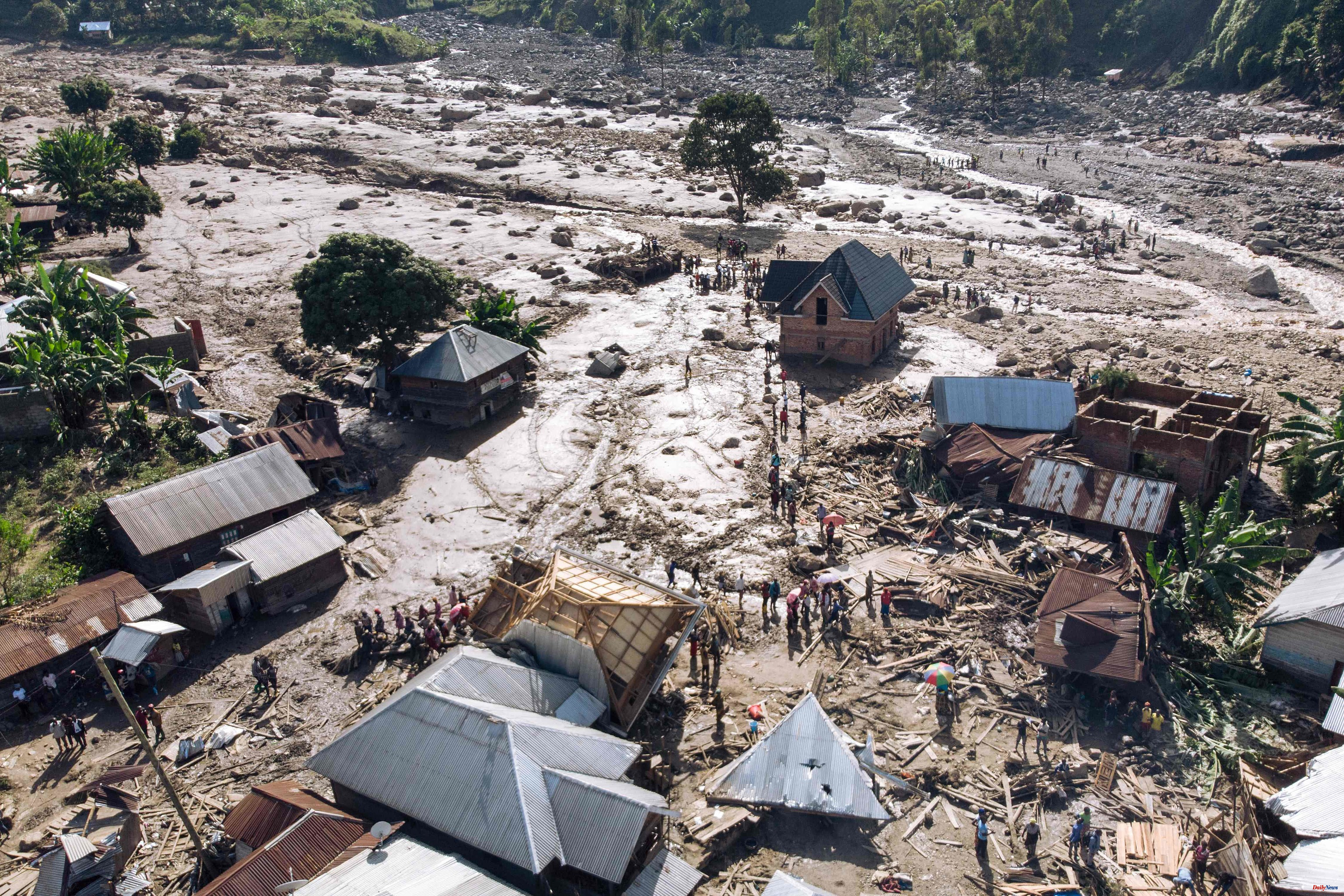"It seems like the end of the world. I'm looking for my parents and my children," lamented Gentille Ndagijimana, 27, through tears, one of the first-hand victims of the serious floods and landslides caused by the heavy rains that hit the eastern Democratic Republic of the Congo. There are about 400 deaths, according to a balance released this Sunday, which may still increase as new bodies are found.
Gentille has lost her two children, her two sisters and her parents. Her husband was injured and is in the hospital. "I no longer have a family and I no longer have a field. Now I have to find a place to sleep," she said.
"We have found 394 bodies," said Thomas Bakenga, administrator of the Kalehe region, where the most affected towns are located, on the shores of Lake Kivu on the border with Rwanda.
The rains have hit the Kalehe region without ceasing since last Thursday, in the province of South Kivu, which caused the overflow of rivers and landslides that devastated the villages of Bushushu and Nyamukubi.
The death balance increases quickly. The day before, Bakenga had announced that there were at least 203 deaths. "Since Thursday we find bodies every minute and bury them," he added.
In Nyamukubi, a hillside, where the weekly market was held on Thursday, also collapsed, Bakenga said. At least 132 bodies were found in this town. Another 142 in Bushushu and 120 floating in Lake Kivu, near the island of Idjwi.
Democratic Republic of the Congo is one of the largest countries in Africa and one of the poorest in the world, devastated by corruption and violence in the eastern areas.
The victims lack everything. The provincial government sent a ship full of food, tarpaulins and medicines. However, the outlook remains bleak. There are entire villages submerged, houses destroyed and fields devastated.
The central government on Friday decreed a day of national mourning for Monday. Roger Bahavu, another of those affected in Nyamukubi, told AFP that he lost his entire family.
"I am a motorcyclist. I had returned from work, I parked my motorcycle at home and went out to see my friends. When I returned, my house, my motorcycle and my family members had disappeared," he said.
Isaac Habamungu, a member of the local Red Cross, said that there are many corpses. "We are overwhelmed," he warned. "We think a lot of bodies ended up in the lake...We wonder how we are going to deal with it," he added, explaining that they have no body bags or funding for their activities.
The disaster came two days after other floods that killed at least 131 people and destroyed thousands of houses in neighboring Rwanda.
UN Secretary General Antonio Guterres said on Saturday during a visit to Burundi that the disaster is "a new example of the acceleration of climate change and its dramatic consequences for countries that are not responsible for warming" the planet.
Experts say that extreme weather events are occurring with greater frequency and intensity due to climate change.
According to the criteria of The Trust Project












